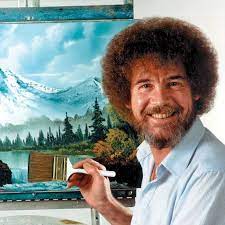
Unveiling the Soul: Exploring the Mind of an Artist
The World of Artists: Celebrating Creativity and Expression
Artists are the architects of imagination, the poets of color, and the musicians of emotion. They possess a unique ability to translate their innermost thoughts and feelings into tangible forms that resonate with audiences across the globe.
From the Renaissance masters to contemporary visionaries, artists have played a pivotal role in shaping our cultural landscape and challenging societal norms. Through their creations, they provoke thought, evoke emotions, and inspire change.
Art comes in many forms – painting, sculpture, music, dance, literature – each offering a distinct lens through which we can view the world. Whether it’s a vibrant canvas that transports us to distant lands or a haunting melody that stirs our souls, art has the power to transcend language and connect us on a deeper level.
Behind every masterpiece lies countless hours of dedication, experimentation, and introspection. Artists are often driven by an insatiable curiosity and a relentless desire to push boundaries. They embrace failure as part of the creative process and see challenges as opportunities for growth.
Artists thrive in diversity – drawing inspiration from different cultures, traditions, and experiences. They are storytellers who give voice to the silenced, advocates for social change, and guardians of history. Through their work, they remind us of our shared humanity and encourage us to see the world through fresh eyes.
As we navigate an ever-changing world filled with uncertainty and complexity, artists continue to be beacons of hope and resilience. Their creations offer solace in times of turmoil, spark joy in moments of despair, and ignite passion in hearts grown weary.
So let us celebrate artists – those fearless dreamers who dare to imagine a world beyond what is known. Let us cherish their contributions, support their endeavors, and honor their unwavering commitment to enriching our lives with beauty and meaning.
Exploring the Creative Realm: Defining Artists, Their Skills, and the Inclusion of Writers
- What is the definition of being an artist?
- What can be called an artist?
- What skills do you need to be an artist?
- Is a writer considered an artist?
What is the definition of being an artist?
The definition of being an artist transcends mere technical skill or creative talent; it embodies a profound connection to one’s innermost self and a relentless pursuit of self-expression. To be an artist is to embrace vulnerability, uncertainty, and introspection as integral parts of the creative process. It is about channeling emotions, experiences, and ideas into tangible forms that resonate with others on a deep and meaningful level. Being an artist means daring to challenge conventions, push boundaries, and redefine what is possible through the transformative power of art. Ultimately, being an artist is not just a vocation but a way of life—a commitment to authenticity, exploration, and the endless pursuit of beauty and truth.
What can be called an artist?
The question of what can be called an artist is one that sparks diverse interpretations and discussions within the creative community. While traditional definitions may associate artists with individuals who excel in visual arts such as painting or sculpture, the concept of artistry has evolved to encompass a wide range of disciplines and expressions. Today, an artist can be anyone who harnesses their creativity to communicate ideas, emotions, or perspectives through various mediums, whether it be painting, music, dance, writing, photography, or even culinary arts. What defines an artist ultimately transcends labels or boundaries and lies in the ability to inspire, provoke thought, and evoke emotions through their craft.
What skills do you need to be an artist?
To excel as an artist, a diverse set of skills is essential. Beyond talent and creativity, artists must possess strong technical abilities in their chosen medium, whether it be painting, sculpture, photography, or any other form of artistic expression. Proficiency in color theory, composition, perspective, and other foundational principles of art is crucial for translating ideas into impactful visual statements. Additionally, artists benefit from effective communication skills to articulate their concepts and connect with viewers on a deeper level. Adaptability, perseverance, and a willingness to continuously learn and grow are also key traits that empower artists to navigate the challenges and opportunities inherent in the creative journey.
Is a writer considered an artist?
The question of whether a writer is considered an artist is a topic that sparks debate among creatives and scholars alike. While some argue that the act of writing, with its emphasis on language, structure, and storytelling, qualifies writers as artists, others contend that the term “artist” should be reserved for those working in visual or performance-based mediums. Ultimately, the definition of artistry is subjective and open to interpretation, making it a complex and intriguing question that invites exploration into the nature of creativity and expression across various disciplines.









-
Tagged analysis, bridge gaps, comprehensive news coverage, coverage, dialogue